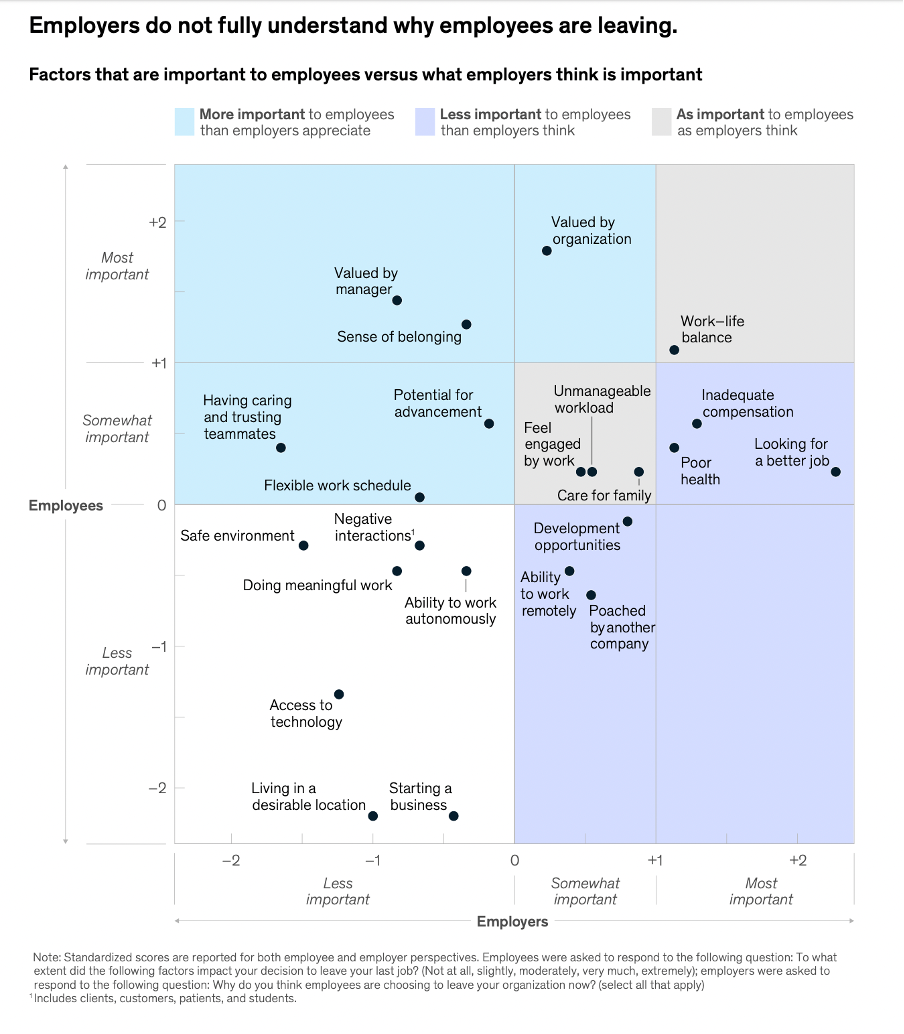Submitted on Thu 09 Dec 2021
Same, Same but Different
In the years following the first world war (1914 – 1918) several things occurred that closely mirror events occurring now.
Firstly, there was a pandemic, the Spanish Influenza pandemic, which has many parallels with today’s Covid-19 pandemic.
Secondly there was huge social upheaval which led to polarising political discourse.
And thirdly, following necessary and sweeping changes to the workforce and the very nature of work, affected workers pushed back on business’s desire to return to pre-upheaval norms.
In the 1920’s this largely took the form of women workers, who had manned (pun fully intended) factories, transportation and heavy industry through the war, pushing for more freedom and equal standing in the workforce.
Having had a taste of equality, freedom and diversified career options (beyond the traditional roles allocated to women), there was a push against returning to pre-war gender norms. This led to social upheaval, strikes and a significant boost for equal voting rights and pay for women.
Jump forward 100 or so years and here we are, stumbling our way out of 2 years of the Covid pandemic and all its associated lock downs. We have read and watched countless articles about ‘the new world of work’. We have been forced to work from home, to home school, to isolate, to socialise on Zoom and to motivate ourselves to keep going.
Some of us have hated it, some of us have loved it and some of us are still a bit unsure what the hell happened. But, one thing is for sure, everybody now accepts that things have changed.
But have they? Cue the company demanding everyone be back in the office 9 – 5, the boss who suddenly needs to see everyone to believe they are actually working and the policy manual that says you need to take half a day’s holiday to get Foxtel installed.
The world of work changed. People were trusted. People had flexibility. We could be more engaged with our families, work and home could mould around each other and we had more choice about how and when we worked. And then we couldn’t.
As 90’s band James once crooned “if I hadn’t seen such riches, I could live with being poor”
To not give trust is one thing, but to trust and then take it away is another.
And hence you have ‘The Great Resignation’, ‘The Big Quit’, ‘The Great Attrition’.
What is and what isn't causing it
There is much written about The Great Resignation and there has been a lot of research conducted (mainly in the US), but overall, there is expected to be unprecedented levels of staff churn over the next 12 months, with many employees stating that they are looking to resign, even without a job to go to.
So why are they resigning and how can you stop them?
In a recent study, McKinsey found that, often, the reasons people were leaving were not matching the expectations of employers.
They found that there were 3 reasons that employers assumed were driving resignations (but aren’t):
- Money
- Ability to work remotely
- Being poached by another company
But they also found that there are 3 reasons that employers assumed weren’t as important (but are):
- A sense of belonging and being valued by the organisation
- Flexibility
- Being valued by their manager
It would be natural for us to assume that employees want to work from home and want more money. Its also natural to assume that our people are being poached pro-actively by one of the many desperate job agencies out there. But in reality, these things have less influence than expected.
Of course, people are lured by more money, but it seems that it is other factors that really drive the motivation to leave.
The study found that employees want flexibility more than working from home. There is a subtle difference between the two and it relates to choice. People have got used to being able to choose when they work and where.
People miss working with other people so working from home has less allure than it did pre-lockdown, but once we have tasted freedom, it is difficult to return to militant attendance at the office.
If I need to stay home to let the plumber in, why can’t I?
So given these findings, what can we do to ensure that we optimise our chances of keeping our people.
Here are the 3 things you can do today to have an impact.

Who are the non-squeaky wheels
We all have that person, the one who is vocal about their need for attention and pay rises. And, if they are critical to your operation, they probably get them. But, as they say, “the squeaky wheel gets the oil.” Who isn’t speaking up? Who is critical to your operation but is quiet? Who are you assuming doesn’t need a pay rise this year? Often a pay rise isn’t about the money, its about being appreciated. If you have someone in your operation who you cant afford to lose, are you assuming they are OK? Are you assuming they don’t need a raise this year? If you don’t offer them one or, even worse they have to ask you for one, you will lose them.
Go through everyone in your team and base your pay rises on who deserves it and who you can’t afford to lose, not on why squeaks the loudest.
When you give our pay rises be vocal about your appreciation, make sure you let it be known that the raise isn’t just about money, that it is about appreciating loyalty, hard work and results.
Review your flexibility
How flexible are you? Do you walk the walk or just talk the talk. Being back in the office is fine but do you need to go back to how it used to be? Are you able to leave some of the flexibility behind? Do you have to do company meetings at school drop off times? Could you let people work from home if they want to, without guilt? If they do work from home, can they partake in meetings as effectively as if they were in the office?
Reviewing your flexibility (and associated systems) is about questioning everything. Why do you do things at that time? Are all of those things necessary? Could they be as effective (or, dare I say it, more effective) if some or all of the team were remote.
And the most important thing to review? Your attitude. People CAN be trusted. People DON’T need to be watched. And if you can’t trust your people, I hate to break it to you, but it’s because they don’t trust you. So, change starts with you.
Set out a path
We have all been through a shared, traumatic experience. And one of the results is that we all want to feel part of something bigger, something with meaning. If you can’t give that to your team, then they will seek it somewhere else. So create meaning.
Maybe you had a company goal, a purpose, a mission? But have you been communicating it? Is it still front of mind? We’ve all be so focussed on near term survival that many of us have forgotten to talk about long term purpose. If this is the case, revisit it, bring it back into the conversation. Your team joined you for a reason, maybe it was because they felt aligned to your purpose. This could be your secret weapon in keeping your team intact.
Maybe you’ve never been a company with a bigger purpose. Maybe now is the time to get one. It could be the thing that gives your team the meaning they are craving.
The great resignation is coming whether we like it or not. We can throw money at, make everyone stay at home in the name of flexibility or rage about the injustice of it. Or we can look at ourselves and see this as an opportunity to build a company with purpose, with genuine flexibility built on trust and with rewards based on equity. And hopefully we’ll make it through this with an intact team and a better company.
If you are looking to engage a recruitment agency to help hire amazing people for your awesome company and you’d like to start with a chat, then call us today on (02) 8346 6700 and speak to one of our recruiters or send us an email to [email protected]
The Recruitment Company – Making people enjoy the recruitment experience again
Specialist Recruitment Agency within Information Technology, Project Services, IT Infrastructure, Software Development, SAP, Data and Analytics, Devops, Cloud and the Public Sector.
#experience


























